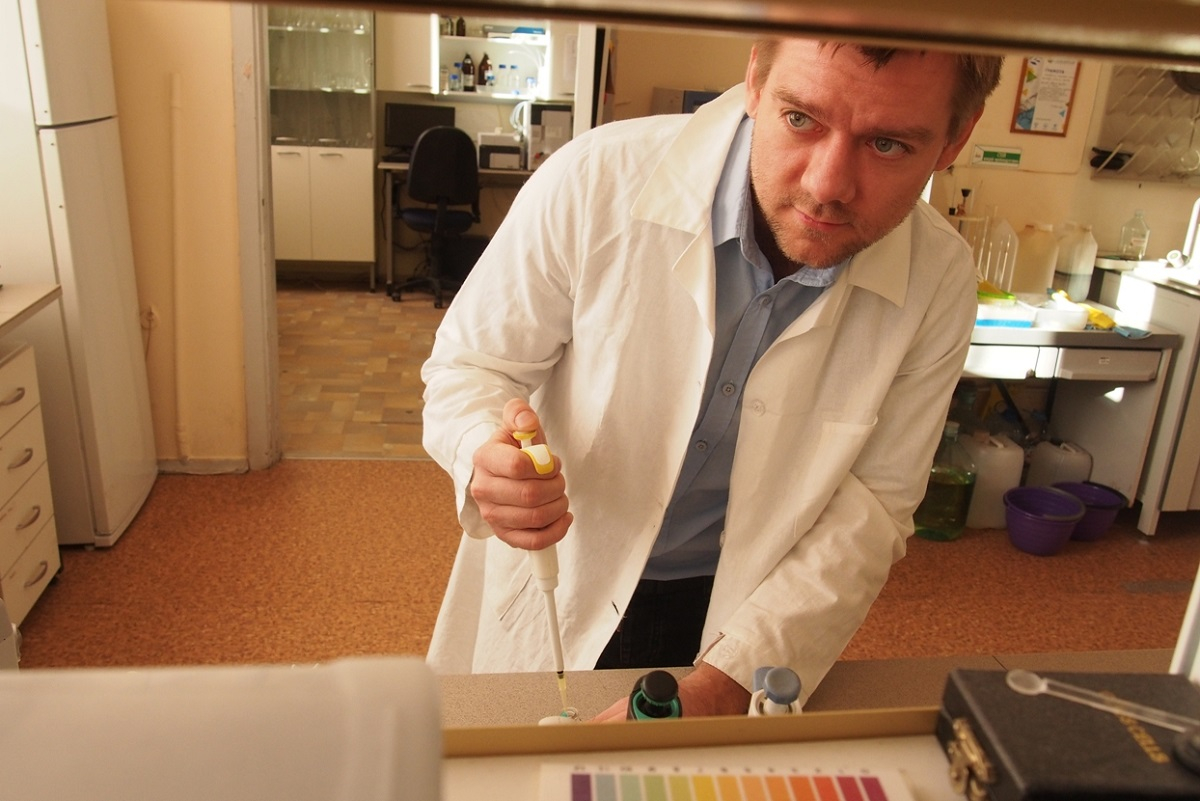Chemists from St Petersburg University learn how to detect phenols in sausage using vitamin B4

The members of Professor Andrei Bulatov’s research group have proposed a new method for identifying different kinds of phenols in smoked foods. These are the aromatic alcohols that give such food its ‘smoky’ taste. They propose to extract these phenols by use of choline chloride, otherwise known as vitamin B4. Environmentally safe, quick and inexpensive, this method can be used in analytical laboratories at factories, where it is necessary to determine the concentration of these alcohols in prepared foods.
The research findings have been published in Food Chemistry.
Today, phenols are used to produce medicines, paints, and inexpensive furniture made of chipboard or MDF panels and also to process food. Some of them are capable of imparting a pleasant smoky aroma to food, so they are often added to sausage or fish. But if we eat something that is high in phenols, it can have a deleterious effect on our health, so at factories they pay close attention to their concentrations in food. During tests, more often than not meat samples are dissolved in alkalis (in which phenols are very soluble), but the resulting emulsions require additional purification from the fats contained in sausage.
‘Our method is based on application deep eutectic solvents – very promising compounds that have been studied extensively over the last fifteen years,’ said Andrei Shishov, the project leader, who has a PhD in Chemistry and is an associate professor in the Department of Analytical Chemistry at St Petersburg University. ‘Usually, such solvents formed from two substances, which are then used to extract a third. But we got to thinking about it and wondered if it wouldn’t be a good idea to try deriving this substance not through a solvent but by means of the way it is formed. After all, phenols themselves produce such compounds when they bond with choline chloride – it’s the commonly known vitamin B4.’
This innovative approach involves only a few steps. First of all, a meat sample is minced and then mixed with organic solvent. After that, a piece of paper with a layer of choline chloride crystals, on which phenol is excreted, is immersed in the solution. The composition on the surface of the paper is washed off with water, and the concentration of phenols in it is determined by using, for example, a chromatograph – a special device for analysing a mixture of substances.
The paper membrane is impregnated in a special substance, choline chloride, which is used to discharge phenols. The meat sample is put in the solvent, in which the membrane has been placed on a needle. Phenols are excreted on its surface. After that, the phenols are washed off the surface of the membrane with water, and the resulting solution is analysed with the use of a special device.
Best of all, as the chemists in Professor Bulatov’s research team note, this technique is perfect for solid products, which are easy to grind up. Among its advantages are safety – after all, vitamin B4 is nontoxic – and speed – if all of the instruments are properly adjusted, an analysis takes no more than half an hour. What is more, this new approach makes it possible to determine whether a sausage has really been smoke-cured or liquid smoke has simply been added to it.
‘Besides, using this method, it is also possible to identify polyphenol compounds in edible oils, for example olive oil, and this is exactly what we are looking at now,’ said Mr Shishov. ‘It is known that these are the compounds that account for the antioxidant activity of edible oils, and they are beneficial for our health.’
This research is supported by Grant No 18-73-00111 from the Russian Science Foundation.

